Eviction in New Jersey is a legal process that requires property managers to follow certain steps, including providing notice to the tenant and filing a lawsuit with the court. Before initiating the eviction process, it’s important for property managers to understand the laws and regulations that govern evictions in New Jersey.
The eviction process begins when a landlord serves an eviction notice on a tenant. This notice informs the tenant that they must leave the premises by a certain date or face legal action.
After giving the tenant proper notice, if they do not vacate by the specified date, then landlords can file an official complaint with the court to begin an eviction proceeding. From there, it may take anywhere from several weeks to months for an eviction case to be completed.
During this time, both parties will have opportunities to present their case before a judge makes a final ruling. With knowledge of the various steps involved in evicting tenants in New Jersey, property managers can better handle any challenges they may face during the eviction process and hopefully achieve successful outcomes.

When it comes to evicting tenants in New Jersey, it is important to understand the rules and regulations that are in place. All evictions must be done through the courts and a landlord cannot use any self-help measures such as changing the locks or shutting off utilities in order to force out a tenant.
The landlord must first provide written notice to the tenant of their intention to evict, which must include the reason for eviction. This notice can be delivered via mail or hand delivery.
Depending on the reason for eviction, the tenant may have anywhere from three days to six months before they must vacate the premises. If the tenant fails to move out within this time period, then the landlord can file an eviction complaint with their local court.
Once this complaint is filed, a hearing date is set for both parties to present their cases before a judge. After considering both sides of the argument, if the judge decides that eviction is warranted, then they will issue an Order for Possession of Premises which requires tenants to leave within 10 days.
The final step in an eviction process is for law enforcement officers to physically remove any tenants that do not comply with this order. It is important that landlords understand these rules and regulations when it comes to evicting tenants in New Jersey in order ensure a smooth process and avoid potential legal action from either side.
Once a notice to comply has been served to the tenant, the tenant has a certain amount of time to either comply with the notice or move out. In New Jersey, the landlord must give the tenant at least 10 days.
The tenant may be given more time if they are able to prove that they need it. If the tenant does not comply within this timeframe, then the landlord may proceed with an eviction lawsuit.
The landlord can file a complaint in court and have it served on the tenant through a process server or sheriff's office. This will start the legal proceedings for eviction and put an end date on it as well.
The court will then decide whether or not to grant an eviction order in favor of the landlord, which could take up to several weeks depending on how backed up the court is.
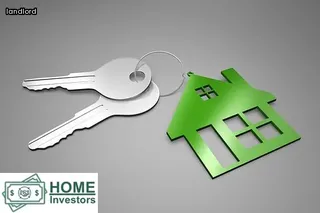
DoorLoop is an ideal solution for property managers with portfolios in New Jersey. Its user-friendly interface makes it easy to quickly and accurately calculate the time it takes to evict a tenant. Additionally, DoorLoop keeps track of all your tenant information, so you can easily access relevant documents such as leases and notices while avoiding the hassle of rummaging through paperwork. Furthermore, it offers automated notifications that keep you informed throughout the eviction process, making it simpler to stay organized and on top of each case. And if you ever need help, DoorLoop's customer support team is available 24/
With DoorLoop's comprehensive system, property managers can be sure they are taking the right steps to efficiently evict tenants in New Jersey without compromising their tenants' rights.
When it comes to the legalities behind self-help evictions, it's important for property managers in New Jersey to understand the process and timeline associated with terminating a tenant's lease. Self-help evictions are illegal throughout the state, and property owners may be subject to legal action if they take matters into their own hands.
The process of evicting a tenant legally includes filing an eviction notice, going to court, and obtaining a Writ of Possession before any action can be taken to remove a tenant from the rental property. The timeline for this process depends on how quickly the court is able to move forward with the case, but typically takes between two and three months to complete.
Property managers should also be aware of potential rights tenants might have under certain circumstances that could extend this timeline even further. It is critical that property managers familiarize themselves with local laws and regulations surrounding evictions in order to ensure compliance while navigating the eviction process.

Evicting a tenant in New Jersey is a process that requires gathering evidence in order to make a strong case. As the property manager, it is essential to collect all the necessary evidence before starting the eviction process.
This includes any written agreements that have been signed between you and the tenant, such as a lease or rental agreement; any security deposits; rent payment receipts; and any other contracts related to the rental arrangement. You should also document any violations of the agreement by taking photographs or videos of property damage or noise disturbances caused by the tenant.
Furthermore, if there are witnesses who can testify to these violations, be sure to collect their contact information. Finally, if appropriate, collect police reports that can serve as additional proof of any offenses committed on your property.
Collecting this evidence will help ensure a successful eviction process and minimize delays in obtaining possession of your rental unit.
Evicting a tenant in New Jersey doesn't have to be an intimidating process. According to the New Jersey Department of Community Affairs, a property manager must first provide the tenant with written notice of intent to terminate the tenancy and request possession of the property.
The amount of time between providing such notice and requesting possession depends on what kind of eviction action is needed. For example, if the tenant has failed to pay rent, the landlord or property manager must give a Ten-Day Demand for Possession before filing a complaint with the court.
If the landlord or property manager wishes to terminate a tenancy for any other reason, they must provide at least thirty days’ written notice before filing with the court. In either case, it's important that all necessary paperwork is filled out correctly and delivered properly in order to avoid any delays in evicting the tenant.
Once all paperwork is filed with the court, it typically takes anywhere from two weeks to three months for an eviction hearing date to be scheduled, depending on how backed up your local court is. After that, it usually takes another one to two weeks for a judge's decision and writ of possession to be issued.
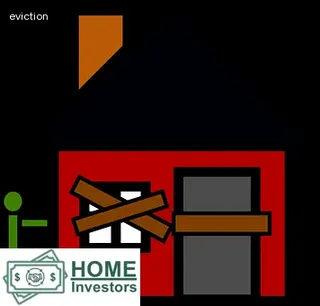
The process for evicting a tenant in New Jersey can be long and complicated, but it doesn't have to be. Property managers should understand the necessary steps to follow in order to legally evict someone from a rental property, or get possession of the property.
The process begins with serving a notice of eviction - which must include specific information and language - and then filing paperwork with the court. If the tenant does not voluntarily move out, then the landlord or their representative must apply for a Writ of Possession from the court.
Once this is approved, the sheriff will be sent to deliver the warrant and remove any occupants who are on the premises at that time. Each step requires care and patience, and it is important to understand all local laws related to evictions before initiating proceedings.
Following these steps will help property managers in New Jersey successfully gain possession of their rental units and protect their interests throughout this process.
Eviction in New Jersey can occur when tenants fail to abide by the rules of their lease agreement. The most common grounds for eviction include not paying rent, destruction or damage to the property, illegal activities occurring on the premises, and disturbances that disrupt other tenants.
Tenants may also be evicted if they are found to be violating health and safety codes such as overcrowding, refusing entry to the landlord or inspector, and keeping pets without permission. In addition, tenants who have been convicted of a crime or whose criminal activity has disturbed other residents may also be evicted.
A property manager should have a thorough understanding of the legal process involved in evicting a tenant in order to ensure that all parties involved understand their rights and responsibilities.

Illegal evictions in New Jersey can have serious consequences for both the property manager and the tenant. The cost of an illegal eviction could include fines, court costs, attorney's fees, damages, and even jail time.
Property managers should be aware that if a tenant is illegally evicted, they may be required to pay back rent and other fees as well as interest or damages. Additionally, any attempt to deny access to a tenant's belongings or remove them from their home without following proper legal procedures could result in criminal charges.
It is important for property managers to understand New Jersey laws regarding eviction so that they can take the necessary steps to ensure their tenants are legally removed from the premises. With this knowledge they can ensure they are following the law while protecting their business interests.
As a landlord or tenant in New Jersey, it is important to understand the different resources available to help with the eviction process. The New Jersey State Bar Association offers free legal advice for both landlords and tenants regarding eviction proceedings.
There are also online resources such as the NJ Courts Self-Help Center that provide useful information for navigating the eviction process. Additionally, there are many organizations throughout New Jersey that offer assistance in understanding tenant rights, such as Legal Services of New Jersey and the Tenants Rights Project.
These organizations provide free advice on how to resolve disputes between landlords and tenants efficiently and with minimal disruption. It is important for landlords and tenants to be aware of these resources so they can make sure their rights are protected throughout the eviction process.
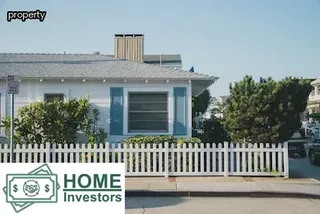
Evicting a tenant in New Jersey can be a time consuming process if not done correctly. With DoorLoop’s free downloads, property managers can save time and money by efficiently and accurately navigating the eviction process.
Using DoorLoop’s downloads, managers can quickly access various documents including Eviction Notices, Court Orders, and Property Management Forms. These documents are easy to fill out and provide clear instructions for completing the eviction process correctly and on time.
Furthermore, DoorLoop’s free downloads also include helpful guides on how to properly file an eviction case with the court as well as what to do after the court ruling is made. By utilizing these resources, property managers can make the best use of their time when evicting tenants in New Jersey by having all of the necessary information at their fingertips.
Submitting a complaint against unlawful eviction practices is an important step to take if you are being evicted in New Jersey. It can be difficult to know where to start when trying to understand the eviction process, but it's important to make sure your rights as a tenant are protected.
The first step is submitting a complaint with the New Jersey Department of Community Affairs (DCA). You will need to provide information about the eviction, including any notice of eviction or other documents you may have received.
Once the DCA has received your complaint, they will investigate the matter and determine whether or not there were any violations of state law by your landlord. If violations were found, the DCA will take action according to their enforcement guidelines which could include fines or other sanctions against the landlord.
After submitting your complaint, it's also possible that you may receive assistance from legal aid organizations in filing an appeal with the court if necessary. In addition, contacting local housing advocates can help ensure that you receive accurate information about your rights throughout this process.

Eviction is a difficult process, and all property managers should strive to explore alternatives to traditional eviction procedures. In New Jersey, the average timeline for evicting a tenant is approximately one month, but there are other options available that can be much faster.
Negotiation is a common strategy used by landlords and tenants alike; if both parties reach an agreement, it may take only a few days to complete the eviction process. Mutual agreements can also include early termination of the lease with no further action taken against either party.
In addition, mediation services from local organizations may be helpful in resolving disputes quickly and efficiently. Although traditional eviction procedures can take up to a month in New Jersey, exploring alternative options could significantly reduce the amount of time spent on the process.
Signing up with DoorLoop is the best way to streamline your tenant eviction process in New Jersey. This service provides property managers with a one-stop shop for tenant eviction paperwork, filing requirements, and more.
DoorLoop takes care of all the steps involved in tenant evictions, including sending notices to tenants informing them that they are being evicted, scheduling court appearances, and handling all of the necessary paperwork. With DoorLoop's help, property managers can rest assured that their tenant eviction process will be handled quickly and efficiently.
Additionally, DoorLoop offers a range of other services such as rental agreement enforcement and lease violation tracking. By signing up with DoorLoop, property managers can save time and energy while ensuring that their tenant evictions are handled properly according to state law.

When it comes to evicting a tenant in New Jersey, the timeline of the eviction process can vary greatly. Generally speaking, an eviction begins with the delivery of an appropriate notice to the tenant.
The length of time that passes between when a landlord serves this notice and when they can file for a court hearing varies depending on the type of notice issued. For instance, if a 3-Day Notice is served, then after 3 days the landlord may proceed with filing for eviction in court.
However, with other types of notices such as a 10-Day Notice or 30-Day Notice, more time must pass before proceeding with filing for eviction in court. Once paperwork is filed in court, there is usually an additional wait period as hearings are scheduled and landlords must provide proof that they have served notice to their tenant.
In some cases, landlords may also be required to attend multiple hearings depending on how quickly their tenant responds to the notice. Ultimately, it could take from several weeks to several months from start to finish for an eviction process in New Jersey.
Using DoorLoop to help with eviction proceedings in New Jersey can save property managers both time and money. This cloud-based platform will automate reminders, notifications, and document filing for a smooth process.
Property managers can track progress quickly without having to search through multiple files or emails. All of the important documents associated with an eviction are easily accessible from one dashboard.
DoorLoop's user-friendly interface also makes it easy for tenants to access information about their rental status and make payments on time. Additionally, property owners benefit from automated payment processing that helps minimize late fees and expenses.
By taking advantage of the features offered by DoorLoop, property managers can ensure that evictions in New Jersey are conducted swiftly and efficiently while also saving money in the long run.

Requesting a demo from DoorLoop can be beneficial for landlords and tenants in New Jersey who are looking to quickly and effectively resolve disputes. On the one hand, DoorLoop’s digital platform provides an opportunity to efficiently manage paperwork.
This allows landlords to easily reconcile tenant payment records, track leasing contracts, and organize documents with ease. In addition, DoorLoop offers 24/7 customer service support for any questions or issues that arise during the eviction process.
On the other hand, DoorLoop’s services may come at a cost for renters. Landlords can utilize this technology free of charge, but tenants may have to pay a fee for accessing certain features on the platform.
Also, as DoorLoop is a relatively new service provider in New Jersey, some renters may be hesitant to use it due to uncertainty about its reliability and security measures. Ultimately, requesting a demo from DoorLoop can help landlords and tenants in New Jersey make informed decisions about solving disputes quickly and effectively while ensuring their rights are protected under state law.
Evicting a tenant in New Jersey can be a time-consuming and complicated process. It is important for property managers to understand the steps involved in the eviction process and how long it may take to move forward with an eviction. In general, the amount of time required to complete an eviction depends on the state of New Jersey and various individual factors.
In New Jersey, there are specific steps that must be followed when attempting to evict a tenant. Property managers should become familiar with these guidelines in order to ensure that their evictions are successful. Before filing for an eviction, landlords must first provide their tenants with at least 30 days written notice and/or a court summons if they fail to pay rent or otherwise violate the rental agreement.
If tenants do not comply with this notice or are found guilty of violating any other terms of the lease agreement, then the landlord may proceed with filing for an official eviction. Once an eviction is filed, it typically takes between 45-60 days for a case to be heard by the court and ruled upon. This timeline can vary depending on court backlogs, tenant response times, or other delays that may arise during the course of litigation.
Additionally, if tenants contest their eviction cases in court, then additional time will likely be needed before a decision can be reached. Overall, it is important for property managers in New Jersey to understand how long it takes to evict someone so they can plan accordingly and have realistic expectations as they navigate through this process. By following all applicable laws and procedures surrounding evictions, property managers will be better prepared to handle any potential issues that may arise throughout the duration of an eviction case.

Delaying an eviction in New Jersey can be a difficult process, but it is possible if you know the right steps to take. The first step is to understand the timeline of the eviction process, as outlined by state laws.
Depending on the circumstances of your tenant, it can take anywhere from 30-90 days to complete the eviction process. If your tenant has lived in the property for more than one year, then you must wait for 90 days before beginning the eviction proceedings.
However, if your tenant has only been living in your property for less than a year and has not paid rent, then you only need to wait 30 days before starting the process. Additionally, if your tenant fails to comply with any notices or orders during this period of time, they may be able to delay their eviction even further.
The next step is to file an Eviction Complaint with the court and serve a Notice to Quit on the tenant. After this notice is served, it may be possible for tenants that do not have any other options available to them to negotiate with their landlord and avoid being evicted altogether.
Ultimately, understanding how long it takes to evict a tenant in New Jersey and knowing what steps are necessary for delaying an eviction can help property managers effectively manage their rental properties and protect their interests.
Evicting a tenant in New Jersey can be a lengthy process, but understanding the timeline and laws surrounding the process can help property managers to ensure that the eviction is conducted properly.
In New Jersey, an eviction on a tenant's record remains for seven years, unless the tenant takes legal action to have it removed.
This means that any potential landlords looking at a tenant’s history will be able to view the eviction for this period of time.
To understand more about how long an eviction will remain on a tenant’s record near New Jersey, it is important to understand the full process of an eviction.
When it comes to eviction in New Jersey, many property managers are unsure if filing for eviction will go on their tenant's record. Eviction is a legal process and can be public record, depending on the type of court proceedings.
The timeframe for an eviction in New Jersey varies, but typically takes 45-60 days depending on where the property is located and how quickly the landlord takes action. In order to evict a tenant in New Jersey, landlords must file a complaint with the court and serve the tenant with a summons and complaint as well as other notices.
Once these steps have been taken, a judge must rule in favor of the landlord before they can proceed with an actual eviction. If your tenant files an answer or requests a hearing within 10 days of receiving the summons then you will need to get a judgment from the court before you can take any further action.
This means that eviction cases may take longer than expected if your tenant has decided to dispute your claims. It’s important to know that while filing for eviction may not go directly on your tenant’s record, it may still appear on their credit report if they fail to pay back rent.
A: Generally, the entire eviction process can take between 1-2 months from start to finish if all paperwork is properly filed by the landlord and adhered to by both parties.
A: The typical eviction process in New Jersey can vary depending on the complexity of the case and the outcome of any legal proceedings. Generally speaking, it can take anywhere from two weeks to several months for an eviction to be fully processed.
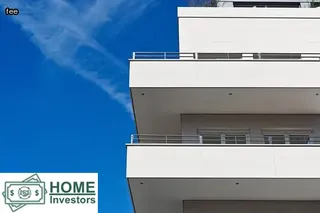
A: The eviction process in New Jersey typically takes at least a month and can be longer depending on the complexity of the case. If legal representation is required, it may take longer to go through the Notice to Vacate procedure and any potential monetary or trial proceedings.
A: Generally, the eviction process in New Jersey can take anywhere from 2 to 8 months depending on whether the tenant contests and if a trial is necessary. If the eviction is dismissed with prejudice, the process may be completed sooner as the tenant will usually vacate without dispute and therefore won't require any court proceedings.
A: In general, employers in New Jersey have 30 days to resolve a dispute with an employee through the use of a settlement agreement.
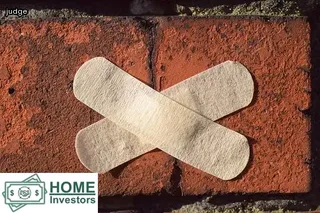
A: According to the Residential Tenancy law and ECourts, the eviction process can take anywhere from one to two months, depending on whether legal proceedings are necessary.
A: The length of time for an eviction process can vary depending on the circumstances. Generally speaking, it could take anywhere from a few weeks to several months to complete the entire process including filing the complaint and obtaining a judgement for actual damages.
A: The entire eviction process can take anywhere between 2-6 months, depending on the complexity of the case. The timeframe for completion also depends on whether or not the tenant appears at court hearings or responds to any legal papers sent via Registered Mail.

A: The length of an eviction process in New Jersey can vary depending on the specific situation. Generally, an eviction process can take anywhere from 30 days to several months depending on if the tenant files an answer or a motion to dismiss, or fails to appear at the county courthouse. The length of time may also be impacted by court delays or other legal proceedings.
A: An eviction process in New Jersey may typically take anywhere from 30-60 days, depending on the circumstances. Due to the impacts of COVID-19, it is possible that this timeline may be extended due to court closures and delays.
A: The length of an eviction process in New Jersey varies depending on the individual circumstances involved. Generally speaking, the process can take anywhere from a few weeks to a few months. Factors that play a role in how quickly the eviction is finalized include the tenant's behavior, any backup documentation provided by either party, the zip code of the rental property, and any associated welfare services.

A: Generally speaking, the eviction process in New Jersey can take anywhere from two weeks to several months. The length of time largely depends on the complexity of the case and whether it includes a stay of execution, ownership issues, or legal assistance.
A: The length of time it takes to complete an eviction process in New Jersey can vary significantly depending on the complexity of the case and the resources available. Generally speaking, an eviction process may take anywhere from a few weeks to several months to complete. The length of the process will depend upon various factors such as the availability of legal assistance, how quickly parties respond to documents or requests for information, and any court hearings that may be necessary.
A: The length of an eviction process in New Jersey can vary widely depending on a variety of factors including the impact of the COVID-19 health crisis, the tenant’s bank account, and expert advice. Generally speaking, an eviction process can take anywhere from several weeks to several months to complete.
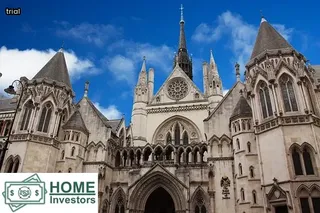
A: An eviction process can vary in duration depending on the circumstances of each individual case. Generally, it can take anywhere from a few weeks to several months for a landlord to evict a tenant in New Jersey. Factors such as the complexity of the case, court delays, and filing errors can all affect the timeline of an eviction process.
A: If a tenant fails to pay rent, a landlord must give the tenant at least five days written notice to vacate the premises. After this notice period, if the tenant has not paid the rent or moved out, the landlord can proceed with an eviction through the court system. The entire process usually takes around one month, but can take longer depending on local regulations and court backlogs.
A: The length of an eviction process in New Jersey depends on the complexity of the case. Generally, it can take anywhere from 2 to 8 weeks for the entire process to be completed.
A: The eviction process can be completed relatively quickly in New Jersey, taking about one to two months from the time a landlord files a warrant for removal with the court until the tenant is removed.
A: The length of an eviction process varies on a case-by-case basis, but generally can take several weeks or even months. The exact timeline depends upon the situation, including the tenant's behavior, the landlord's involvement, and any legal proceedings that may be necessary.
A: Generally, the eviction process can take between one and three months in New Jersey if a tenant fails to pay rent. This time frame is dependent on the landlord's involvement in the eviction process and it could be longer or shorter.